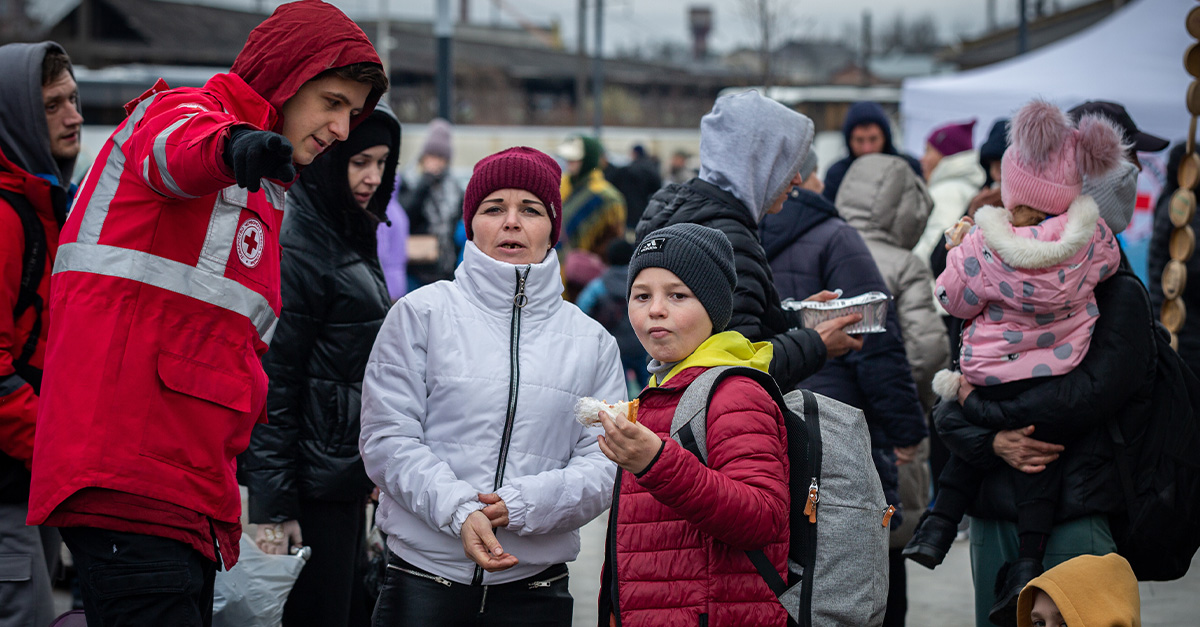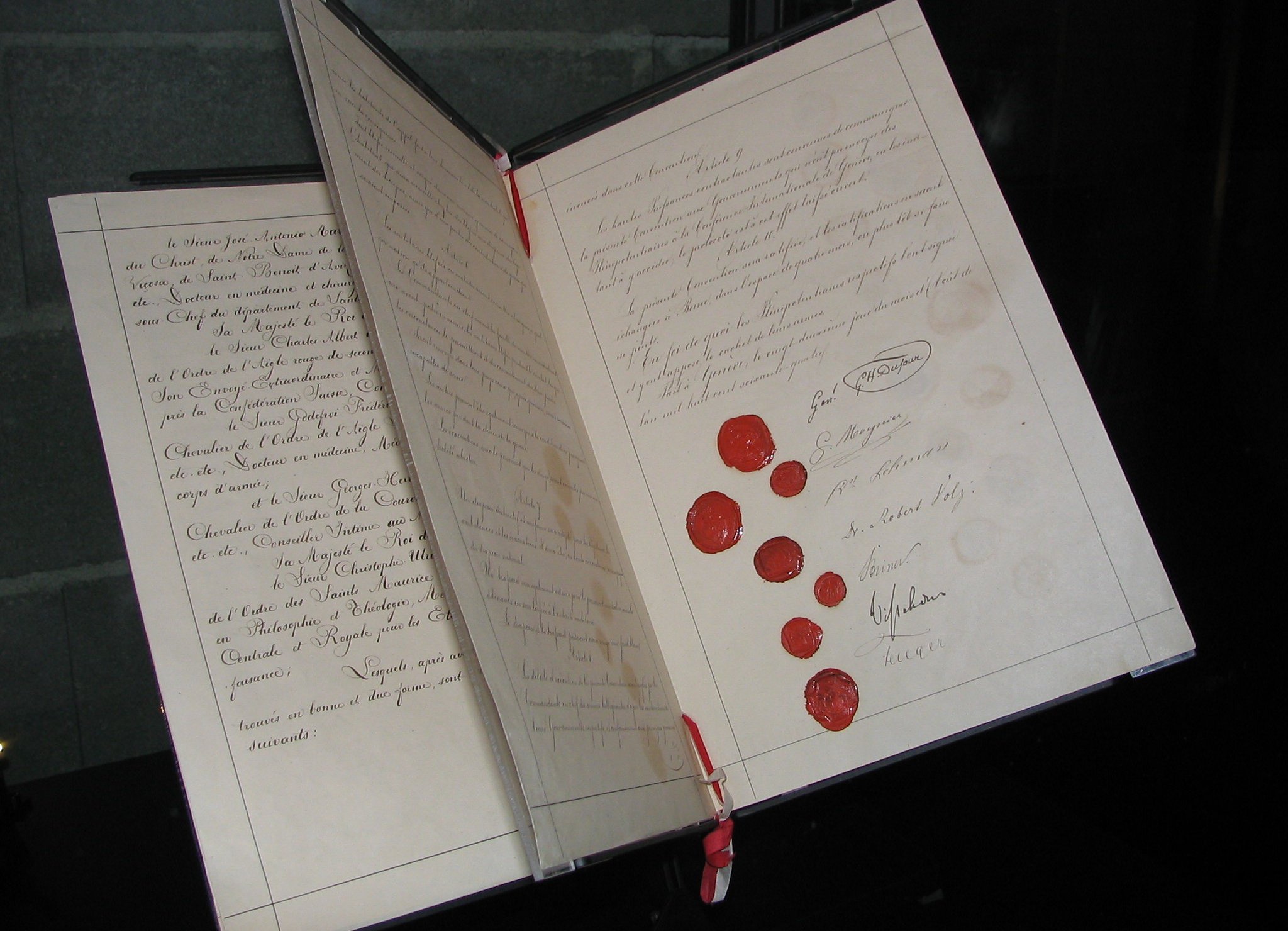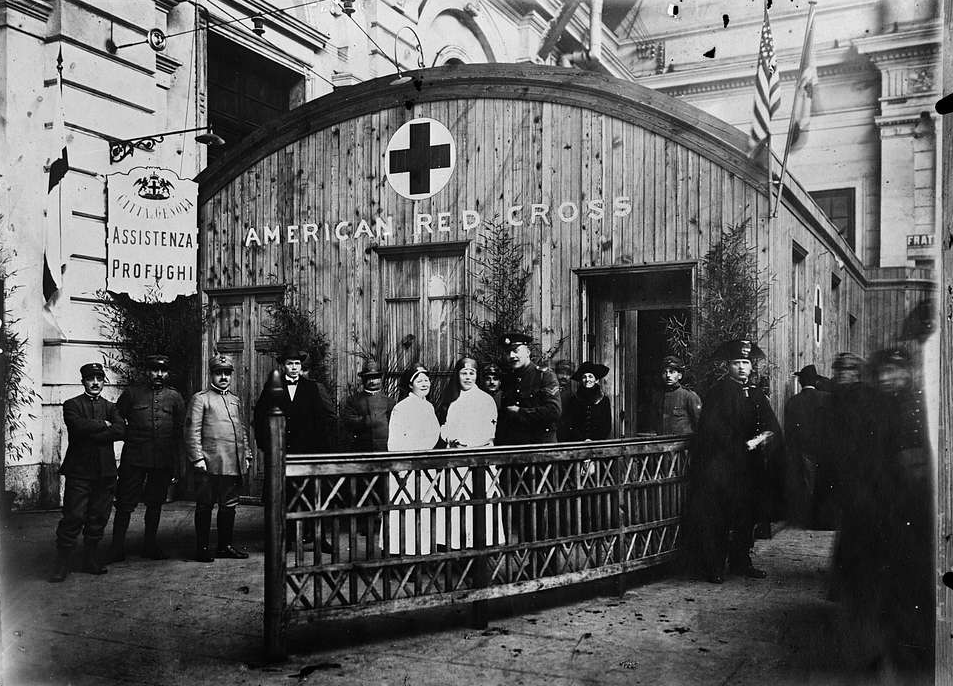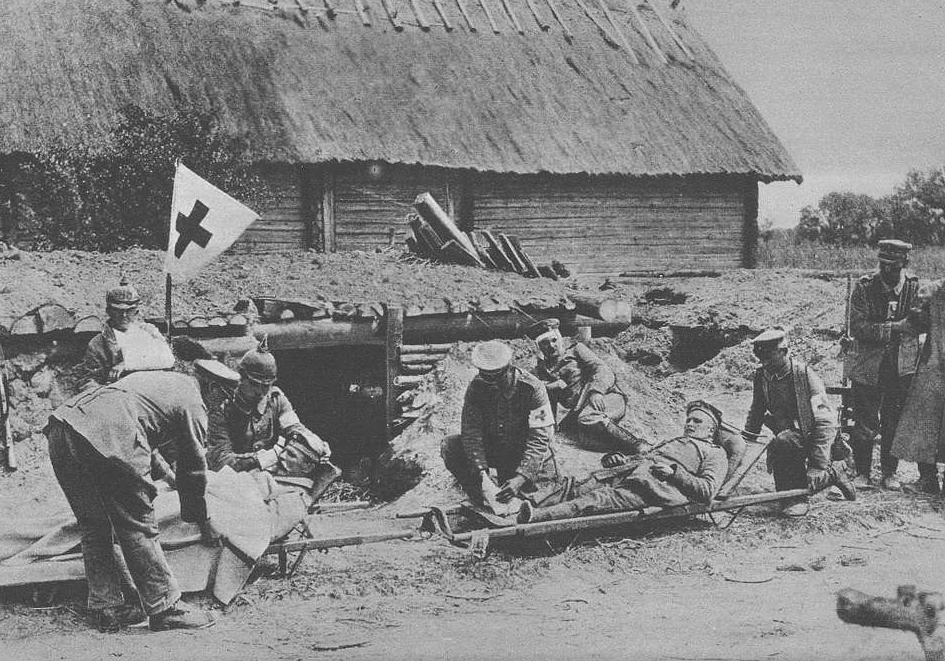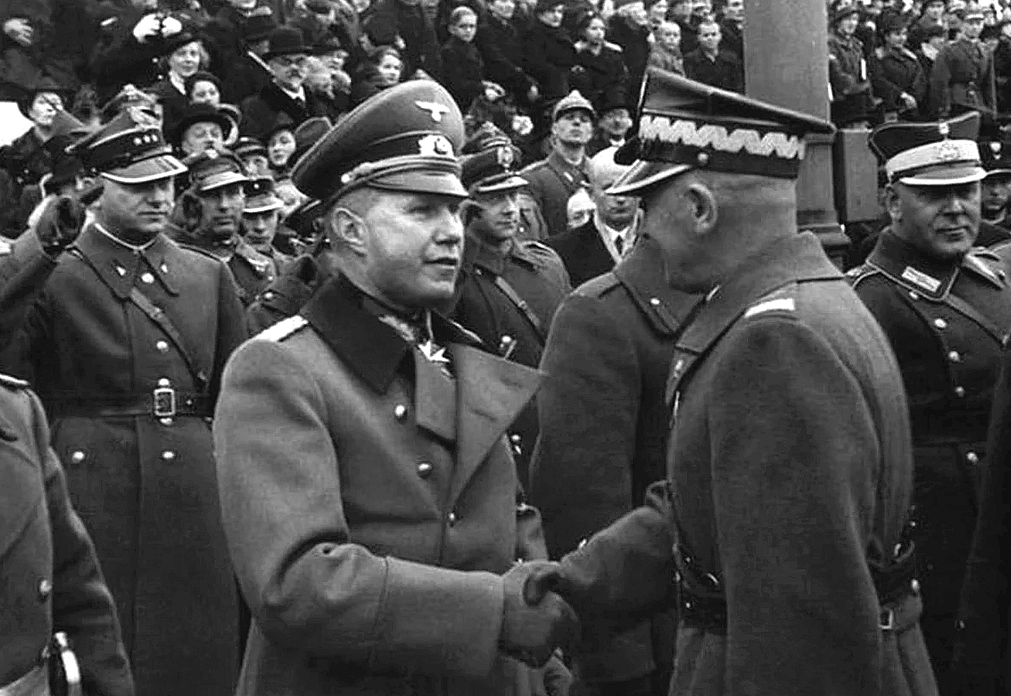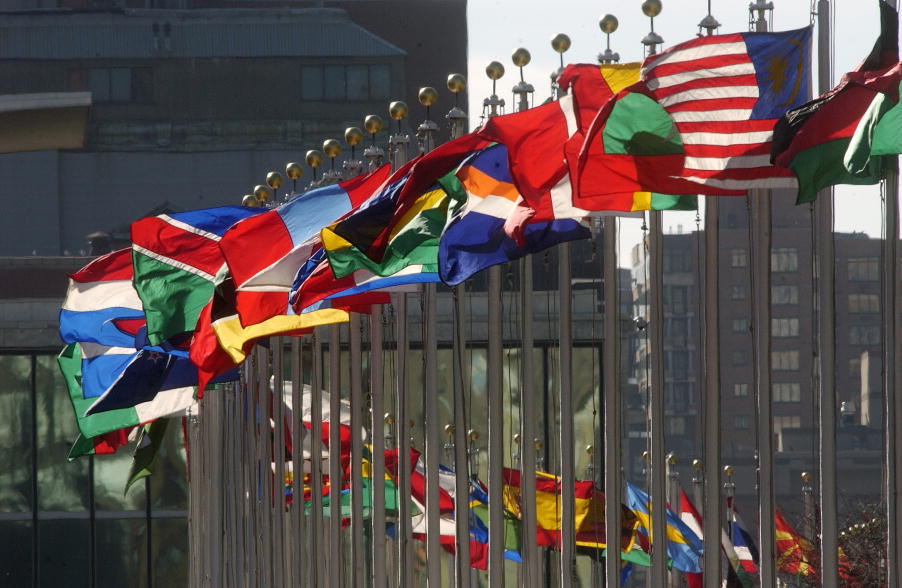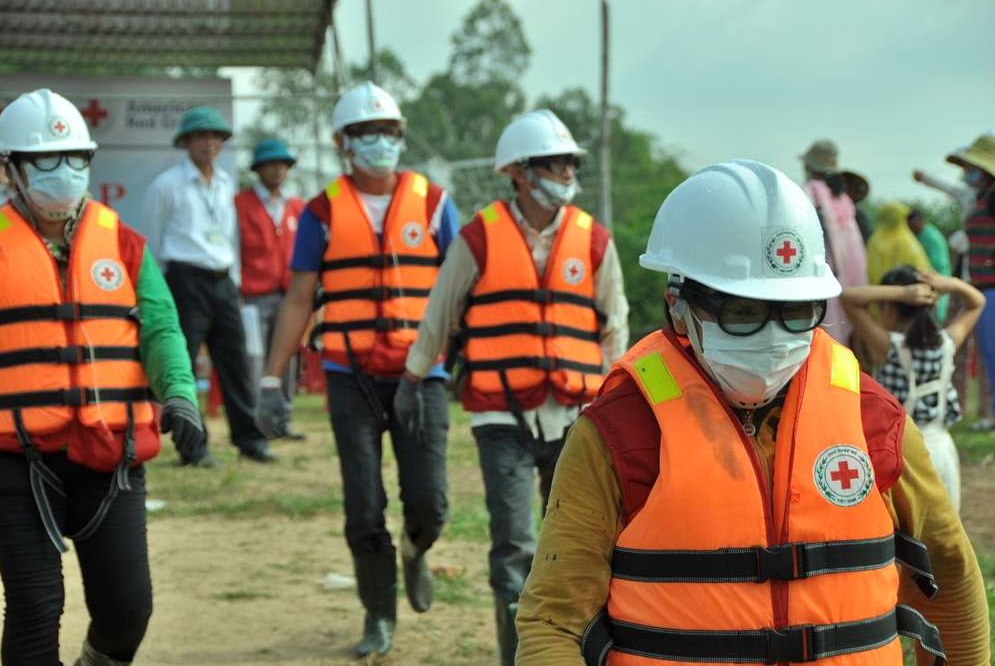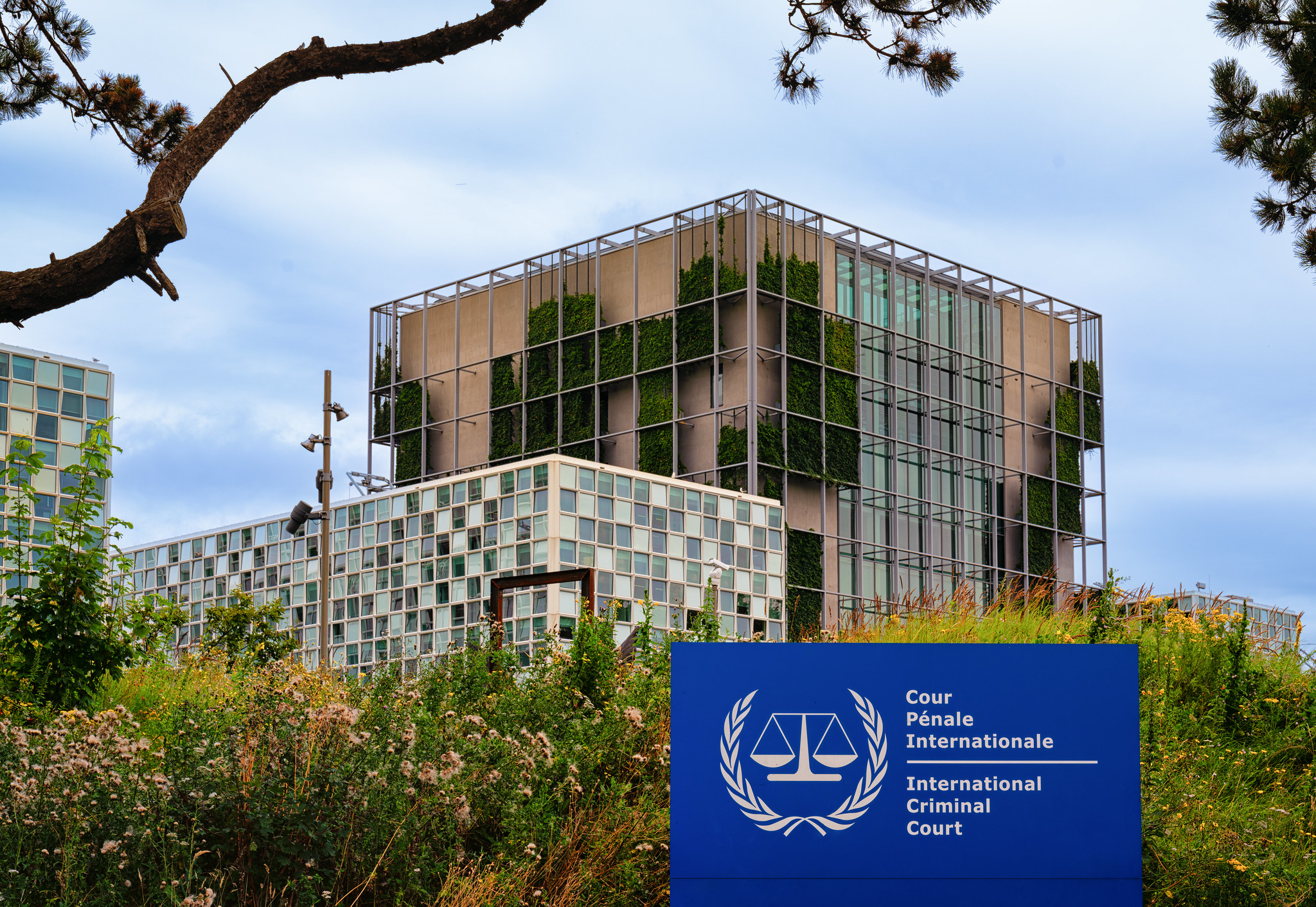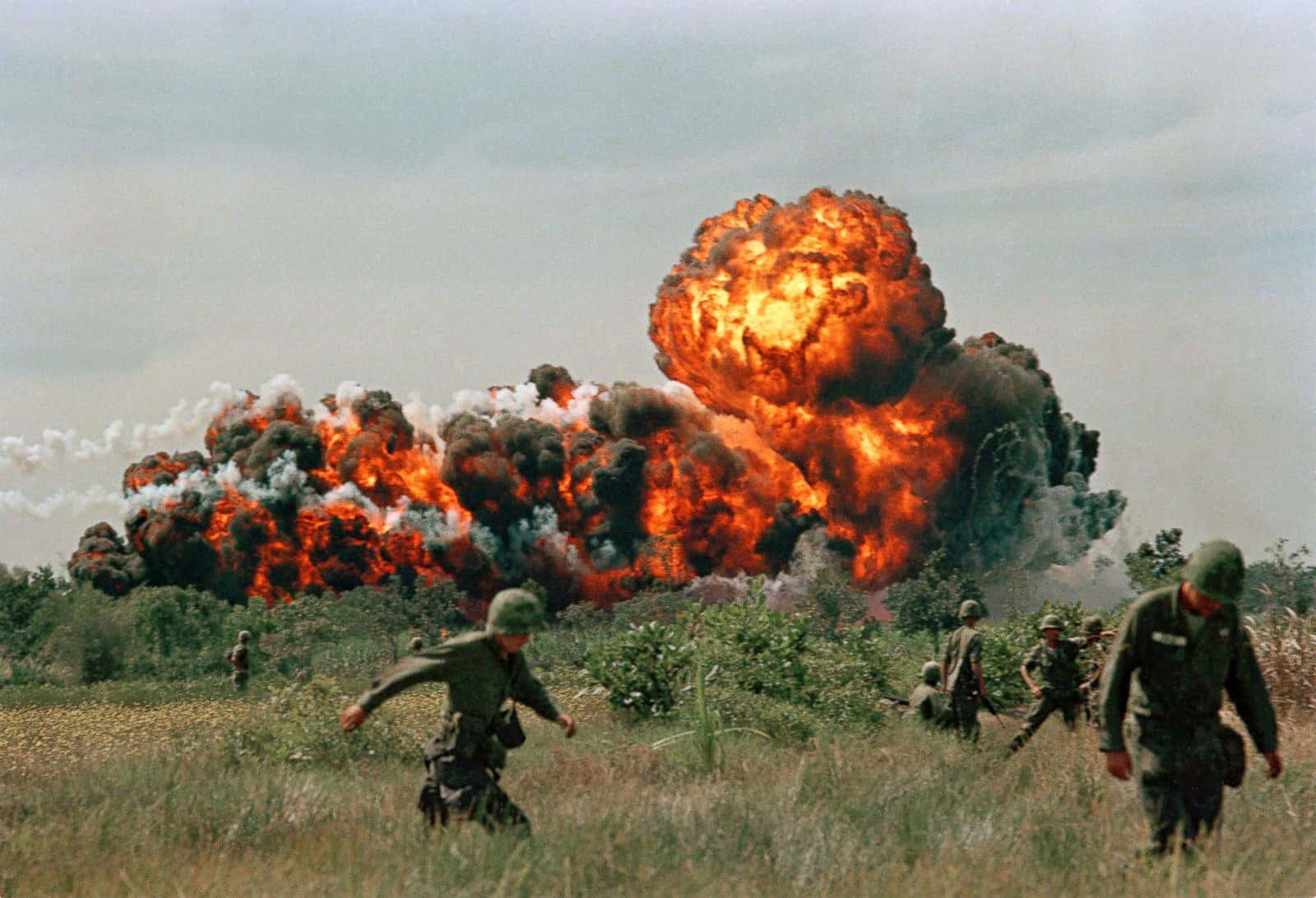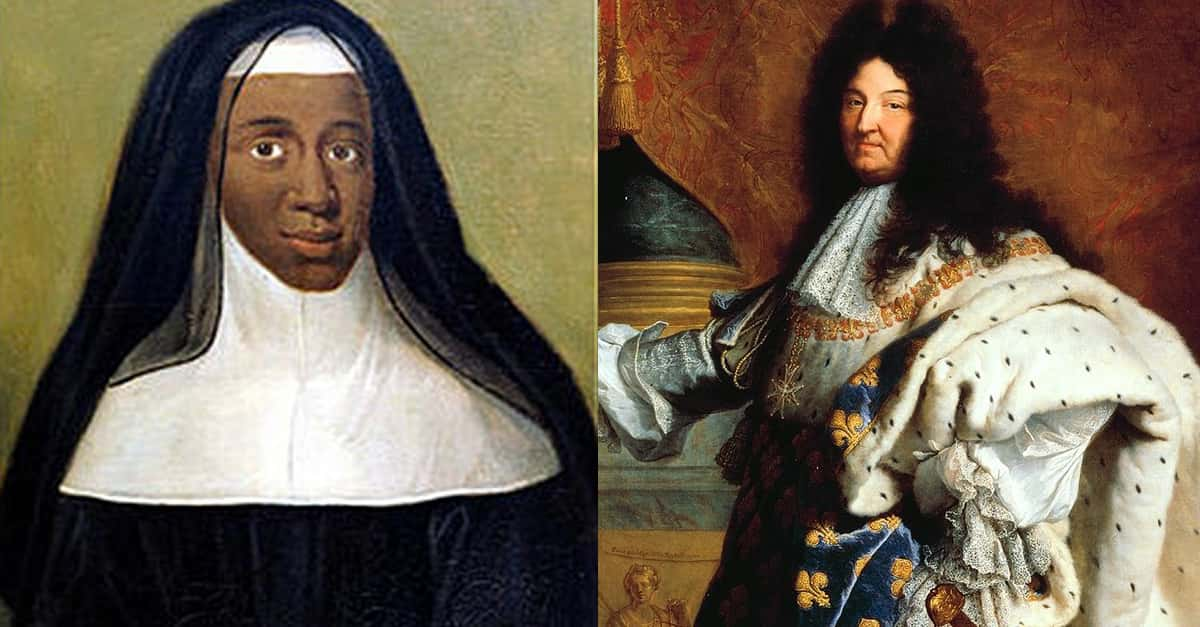The History Of The Geneva Conventions And The Red Cross
The Geneva Conventions are one of the most important pieces of internationally ratified legislation of the 20th century, but where did they begin? Let's take a deep dive into the history of the establishment of international humanitarian law, which formed the basis for the Geneva Conventions and the Red Cross.
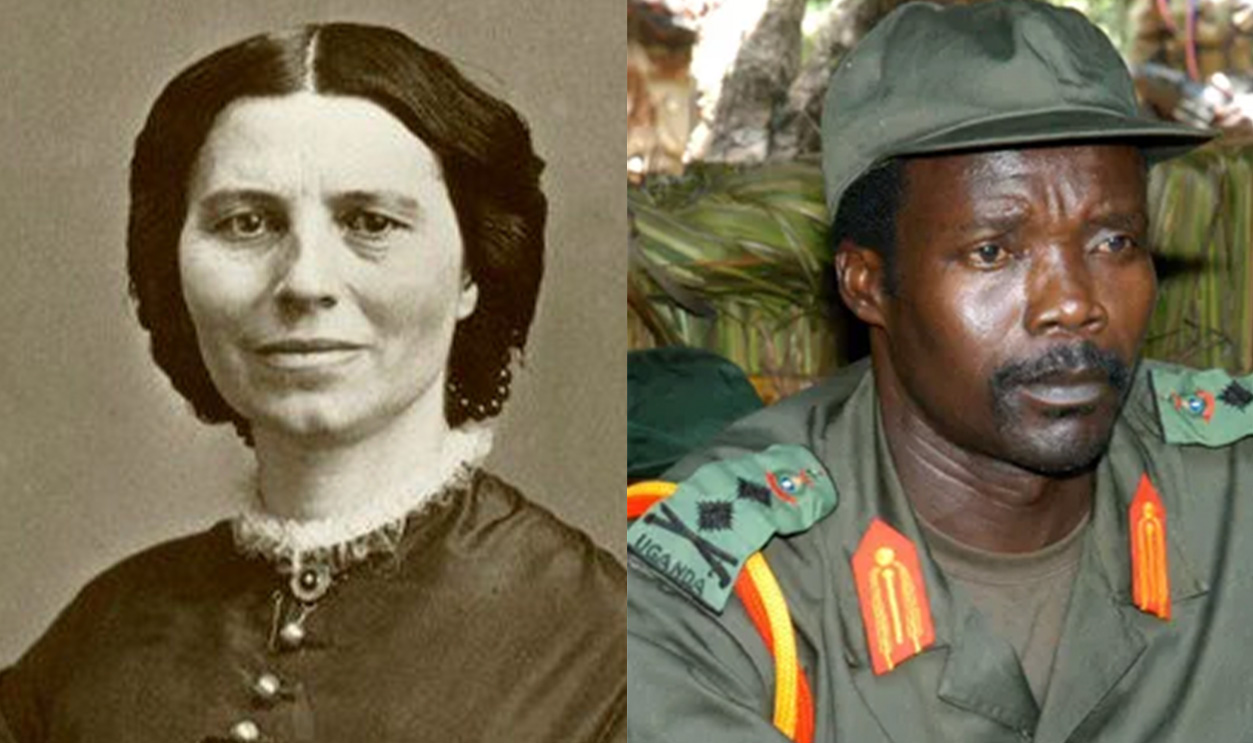
Jean-Henri Dunant And The Battle of Solferino
The Battle of Solferino took place on June 24, 1859 between the French forces of Napoleon Bonaparte and the Austrian forces led by Emperor Franz Joseph I. Swiss lawyer, Jean-Henri Dunant toured the battlefield afterwards and was so horrified by what he saw, he set out to change the world: by setting up an international aid organization.
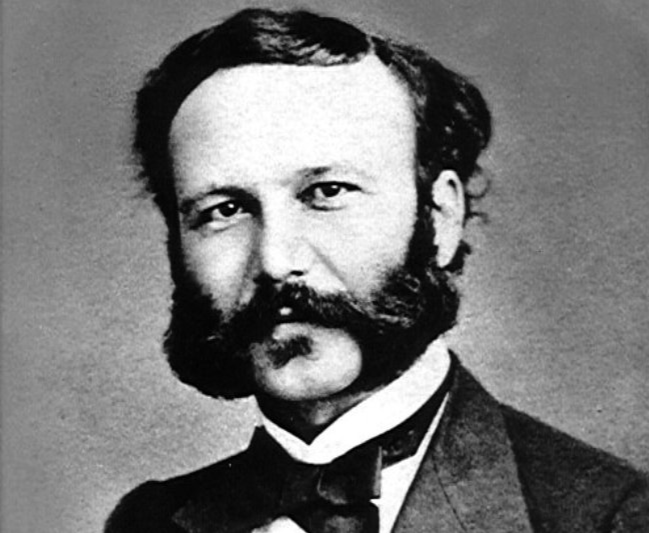 Unknown Author, Wikimedia Commons
Unknown Author, Wikimedia Commons
A Memory Of Solferino Is Published
Jean-Henri Dunant's book, A Memory Of Solferino (1862), was published, detailing the horrors he'd experienced during his visit to the battlefields of Solferino. In the book, Dunant proposed that an international humanitarian aid agency be established and that an international treaty recognize the neutrality of the agency, allowing it to operate in a warzone.
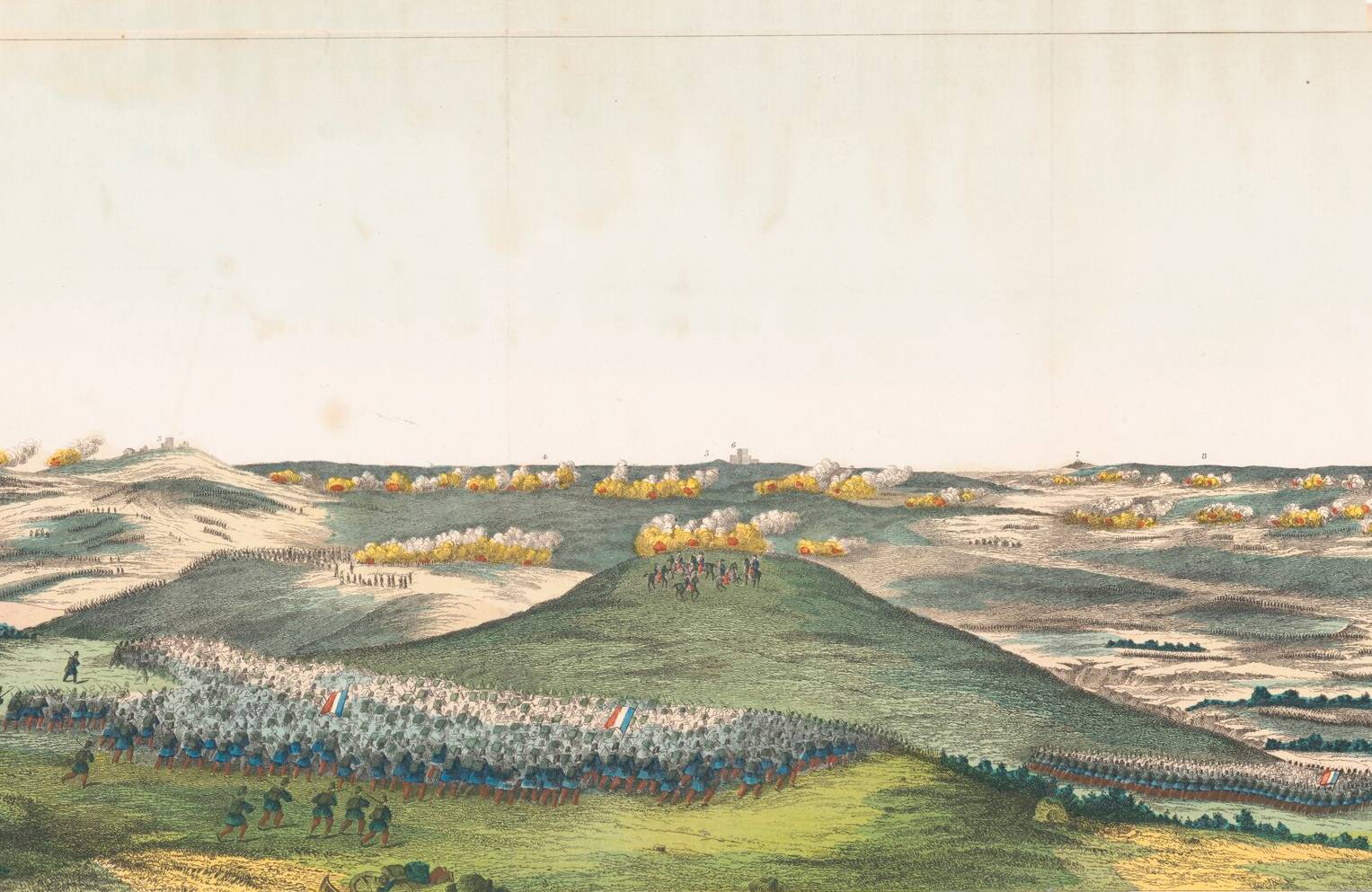 Lang & Laing Lith., Wikimedia Commons
Lang & Laing Lith., Wikimedia Commons
The Geneva Society For Public Welfare Meets
One of the people who received a copy of A Memory of Solferino was Gustave Moynier, a prominent Geneva lawyer and member of the Geneva Society For Public Welfare. He introduced the book for discussion at a society meeting in 1863. The result was that an investigatory committee was established to examine whether Dunant's suggestions were feasible.
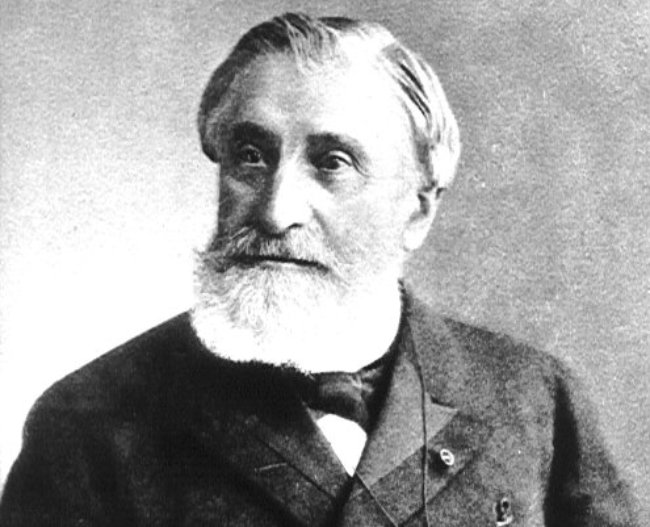 Unknown Artist, Wikimedia Commons
Unknown Artist, Wikimedia Commons
The Committee Of Five Is Established
From the meeting for the Geneva Society For Public Welfare, there was established an investigatory Committee Of Five including Dunant, Moynier, Louis Appia, an experienced field surgeon, Théodore Maunoir, from the Geneva Health And Hygiene Commission, and Guillaume Henri Dufour, a renowned Swiss Army General. After eight days, the committee was renamed the International Committee For Relief To The Wounded.
An International Conference Is Held
From October 26 to 29, 1863, an international conference was organized by the committee. 15 nations met in Geneva and adopted several final resolutions on October 29th that included: neutrality and protection for wounded soldiers, the utilization of volunteer forces for battlefield relief assistance, and the adoption of a common, distinctive protective symbol for medical personnel: a white armlet bearing a red cross.
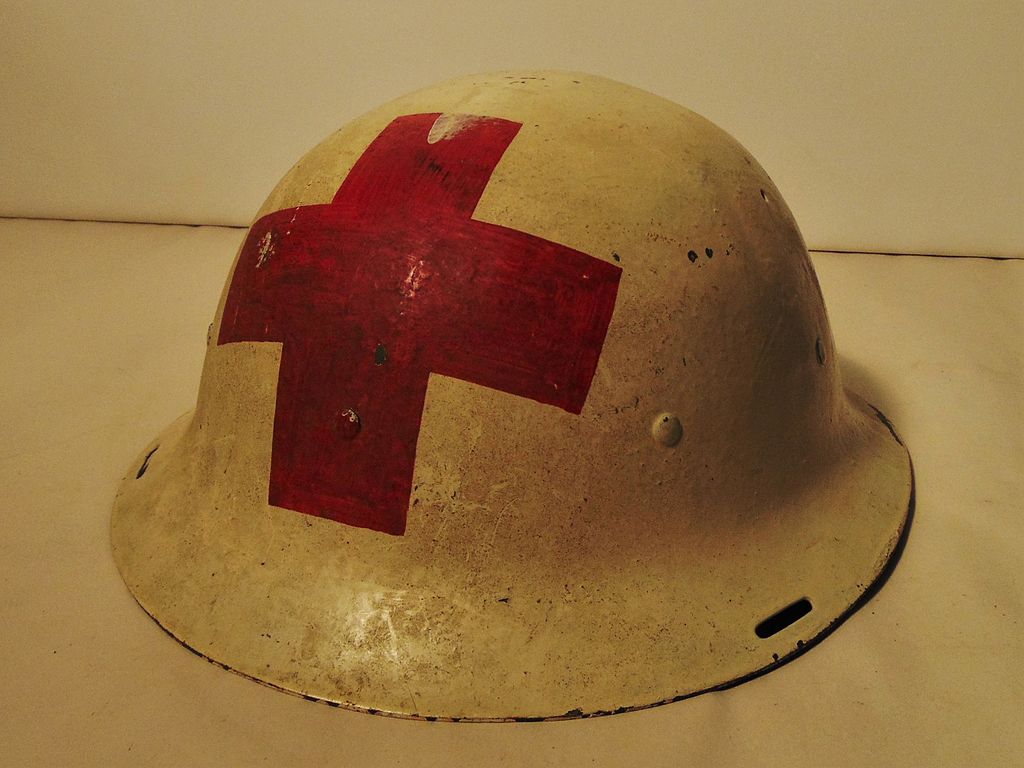 RenseNBM, CC BY-SA 4.0, Wikimedia Commons
RenseNBM, CC BY-SA 4.0, Wikimedia Commons
The First Geneva Convention Is Adopted
The first international diplomatic conference on the matter was held by the Swiss Government, in Geneva, during the third week of August 1864. The Swiss invited all European governments, the United States, Brazil, and Mexico. In total, 16 countries signed the First Geneva Convention for the Amelioration of the Condition of the Wounded in Armies in the Field.
 Charles Édouard Armand-Dumaresq, Wikimedia Commons
Charles Édouard Armand-Dumaresq, Wikimedia Commons
The Red Cross Is Established
In the immediate aftermath of the First Geneva Convention being made law, national societies were founded throughout Europe, naming themselves the Red Cross Society. In the Middle East, Turkey established the Turkish Red Crescent organization against the backdrop of the Crimean War.
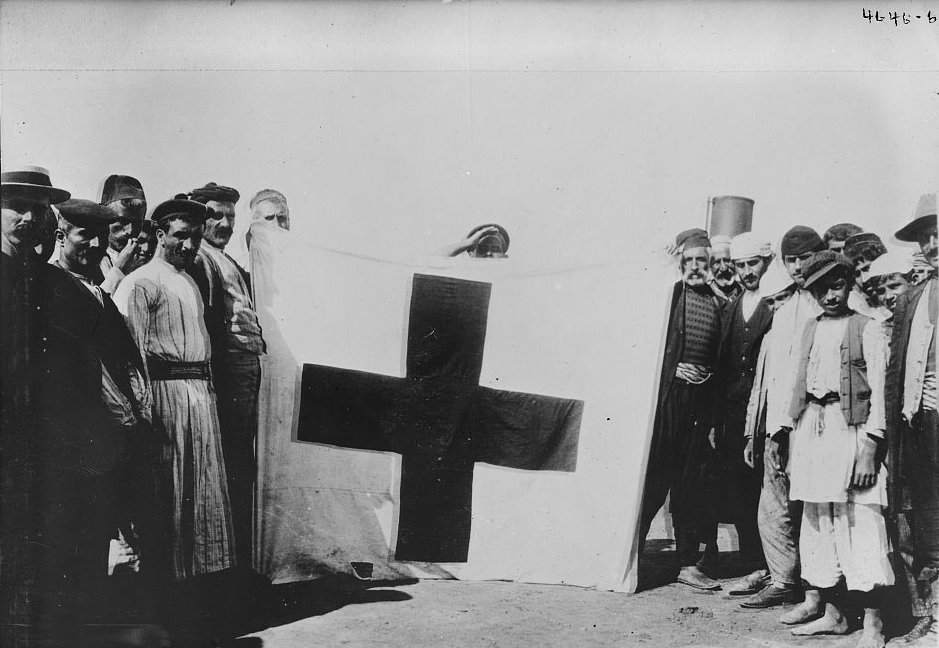 The Library of Congress, Wikimedia Commons
The Library of Congress, Wikimedia Commons
The Red Cross' First Field Assignment Comes
After 10 years of planning and preparation, establishing a global accord, the International Committee for The Red Cross went active in the field in 1875, helping the wounded soldiers of uprisings throughout the Balkans against the ruling Ottoman Empire. Taking no sides and helping all, the Red Cross' first field assignments were a great success.
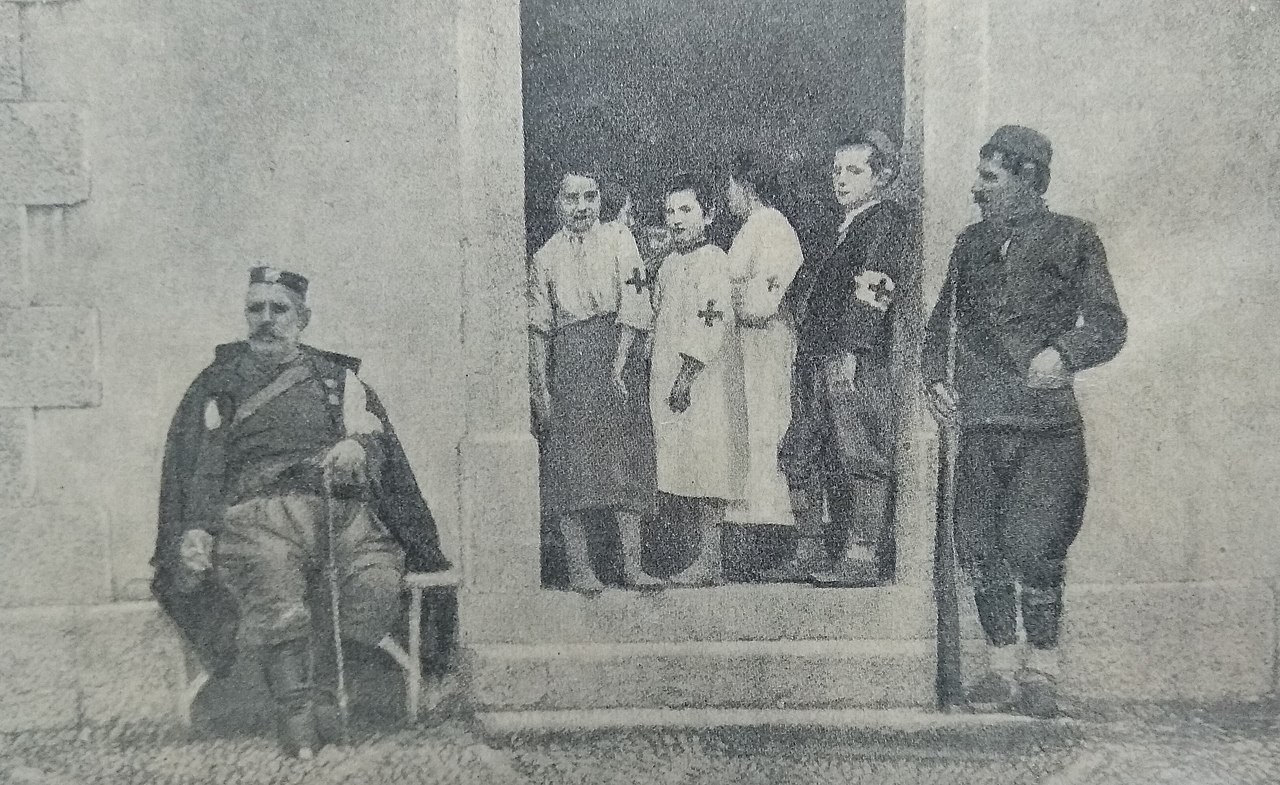 Unknown Author, Wikimedia Commons
Unknown Author, Wikimedia Commons
The American Red Cross Is Founded
Seeing the success of the Red Cross in the field in Turkey, American nurse Clara Barton founded the American Red Cross on May 28, 1881. It received a Congressional charter in 1900 as a nonprofit organization and was mandated to assist the federal government in providing medical aid to the United States Armed Forces and their families, and disaster relief in the United States and around the world.
Dunant Wins His First Nobel Peace Prize In 1901
In 1901, Jean-Henri Dunant was awarded the first Nobel Peace Prize by the Norwegian Nobel Committee for his work with the committee, sharing the prize with Frédéric Passy, an internationally-renowned pacifist.
 ProtoplasmaKid, CC BY-SA 4.0, Wikimedia Commons
ProtoplasmaKid, CC BY-SA 4.0, Wikimedia Commons
The Second Geneva Convention Is Adopted
In 1906, the First Geneva Convention was extended to naval warfare. Officially known as the Second Convention for the Amelioration of the Condition of the Sick, Wounded and Shipwrecked Members of Armed Forces at Sea, it was adopted by the Second International Peace Conference in The Hague, Netherlands.
 Unknown Artist, Wikimedia Commons
Unknown Artist, Wikimedia Commons
The ICRC Faces Its First Test
While its first international deployment came in Turkey in 1875, it would be tested on an international scale during WWI. It saved countless millions of lives and even set up the first prisoner of war agency: the International Prisoners Of War Agency to help families find information about loved ones and to enable aid parcels to be sent to them.
The Third Geneva Convention Is Adopted
Following the conclusion of WWI and the horrors experienced by POWs during their time in captivity, the Third Geneva Convention was adopted relating to the treatment of POWs. It was the first established international humanitarian laws that governed the treatment of prisoners and set standards for their captivity.
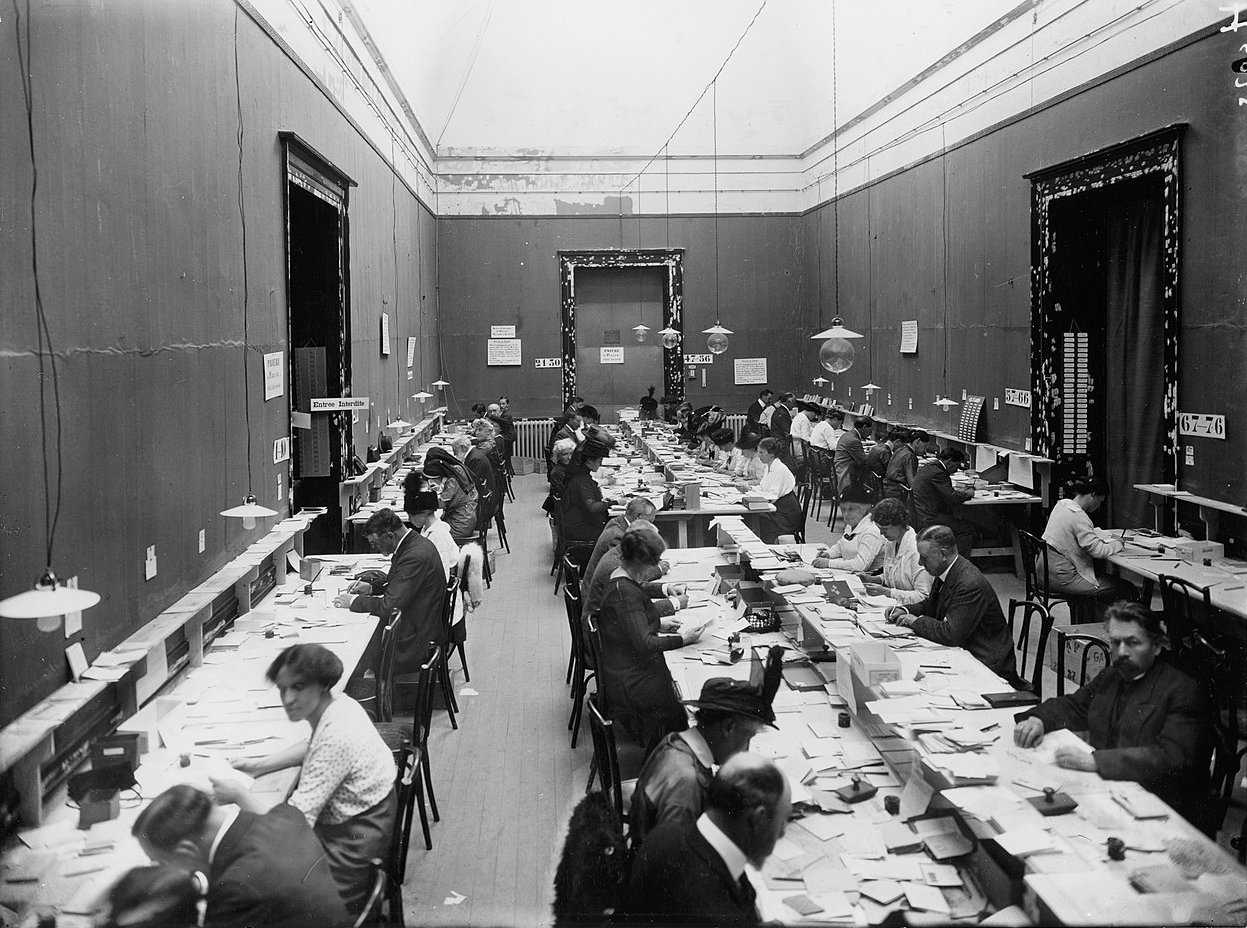 ICRC, CC BY-SA 2.0, Wikimedia Commons
ICRC, CC BY-SA 2.0, Wikimedia Commons
World War II Pushes The Organization To Its Limits
As you can imagine, the horrors of WWII and the Holocaust pushed the ICRC to greater limits than it ever had before—the sheer scale of the need for the Red Cross was almost unfathomable. From treating wounded soldiers to reconnecting lost POWs with their families following liberation of camps, Red Cross units worldwide were stretched thin.
The Fourth Geneva Convention Is Adopted
Following the horrors of the Blitzkrieg over London, the firebombing of Dresden, the general policy of targeting civilians by the Nazi regime in Germany—and the atomic bombing of Nagasaki and Hiroshima—the Fourth Geneva Convention was adopted in August 1949. It's officially known as the Convention Relative To The Protection of Civilian Persons In Time Of War.
 British Red Cross., CC BY 2.0, Wikimedia Commons
British Red Cross., CC BY 2.0, Wikimedia Commons
New Provisions Added To Protect More Civilians
Some of the new provisions added to the Fourth Geneva Convention expanded protections for civilians to include military chaplains, wounded and sick civilians in the accompany of military forces, and medical personnel, facilities and equipment, as well as offering protections to those who take up arms to fight an invading force but are not a registered member of a military force.
 Bain Collection, Wikimedia Commons
Bain Collection, Wikimedia Commons
How Are The Conventions Enforced?
Violations of the Geneva Conventions are not all treated equally, but are all enforced at the national and international level—all parties to the Conventions are obligated to punish violations of the Conventions, and if serious enough, individuals and nation-states can be brought before international tribunals to answer for violations of the Geneva Conventions. These tribunals and the enforcement of International Humanitarian Law (IHL) is the responsibility of the United Nations.
Operation Little-Switch During The Korean War
Codenamed "Operation Little-Switch", the International Committee for the Red Cross organized a massive prisoner swap during the Korean War, mostly consisting of sick and wounded men, women, and children. Such a large undertaking earned the organization huge plaudits
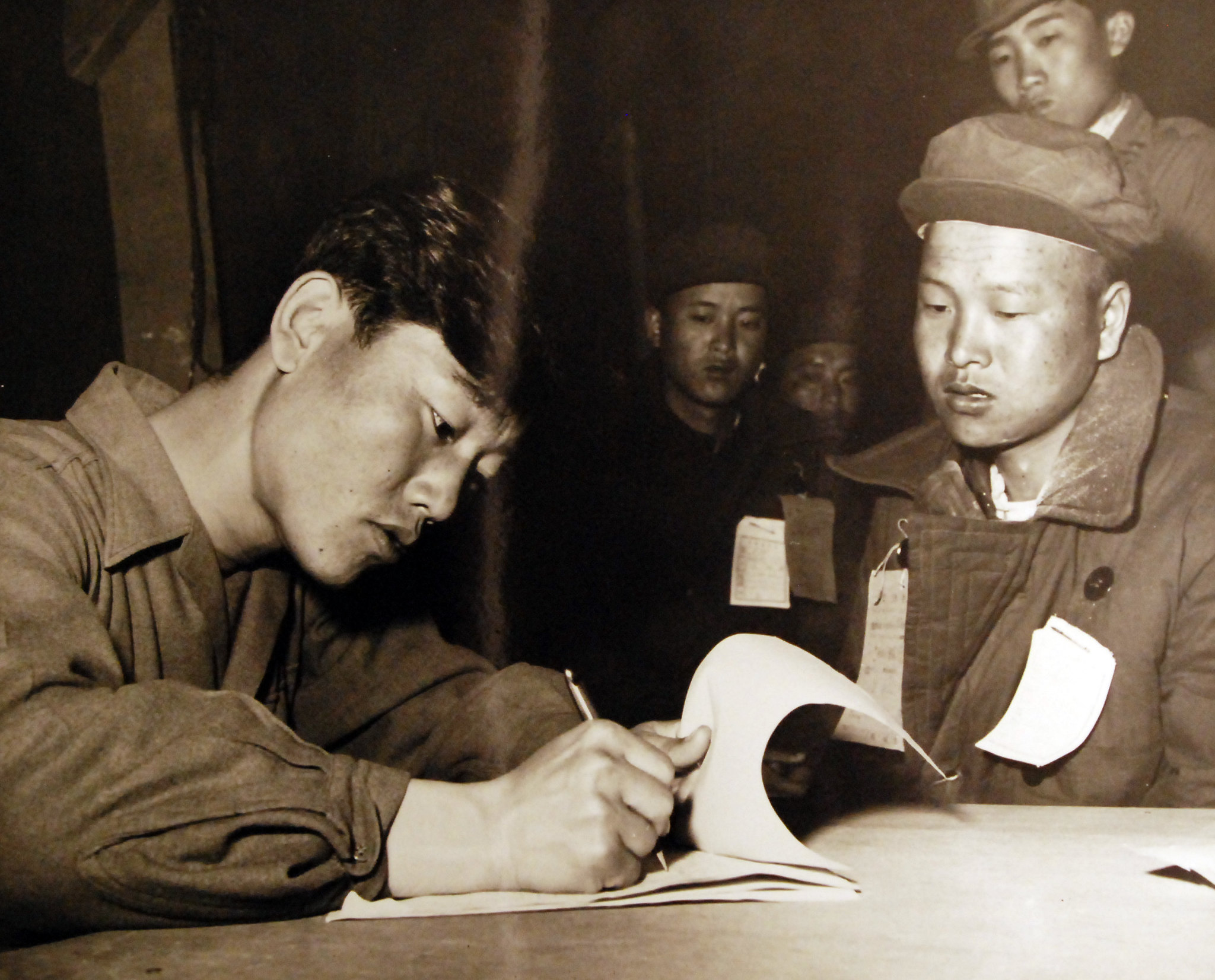 National Museum of the U.S. Navy, Flickr
National Museum of the U.S. Navy, Flickr
Additional Protocols Are Needed
Following the adoption of the Conventions and the international conflicts that followed in the 20th century, it became apparent that additional protocols to the Conventions were necessary. The political environment in the world after 1949 made it difficult to convene an international conference, so the Red Cross was asked to draft additional protocols, but wait until a less politically charged time to present them.
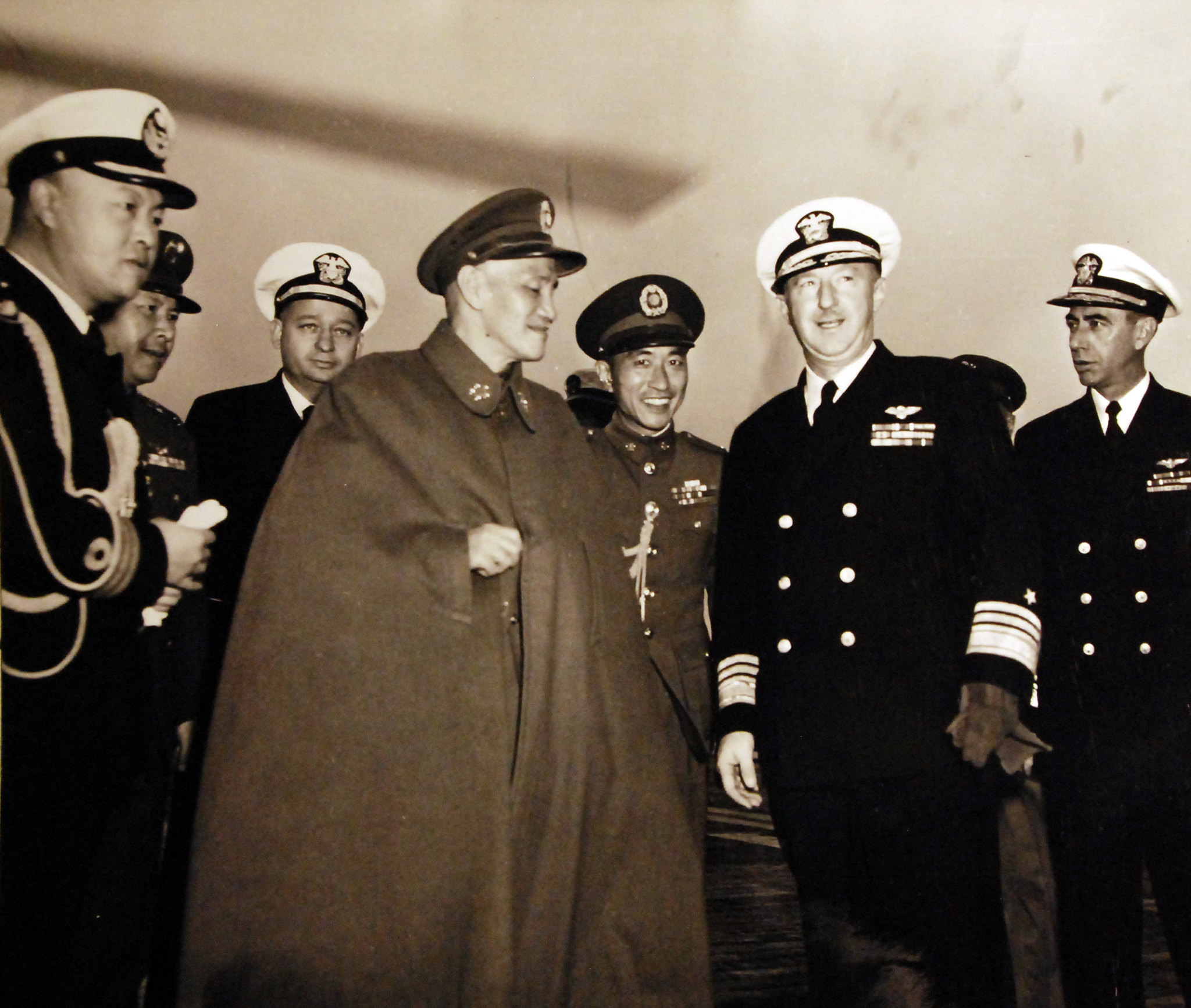 National Museum of the U.S. Navy, Flickr
National Museum of the U.S. Navy, Flickr
Additional Protocols Are Adopted
The Federal Council in Geneva asked the various nations that were parties to the Convention to come to Geneva for conferences in four stages between 1974 and 1977. This led to the adoption of two additional protocols to the Conventions relative to the protection of victims of conflicts, namely ensuring that states provide support where possible of victims of conflict.
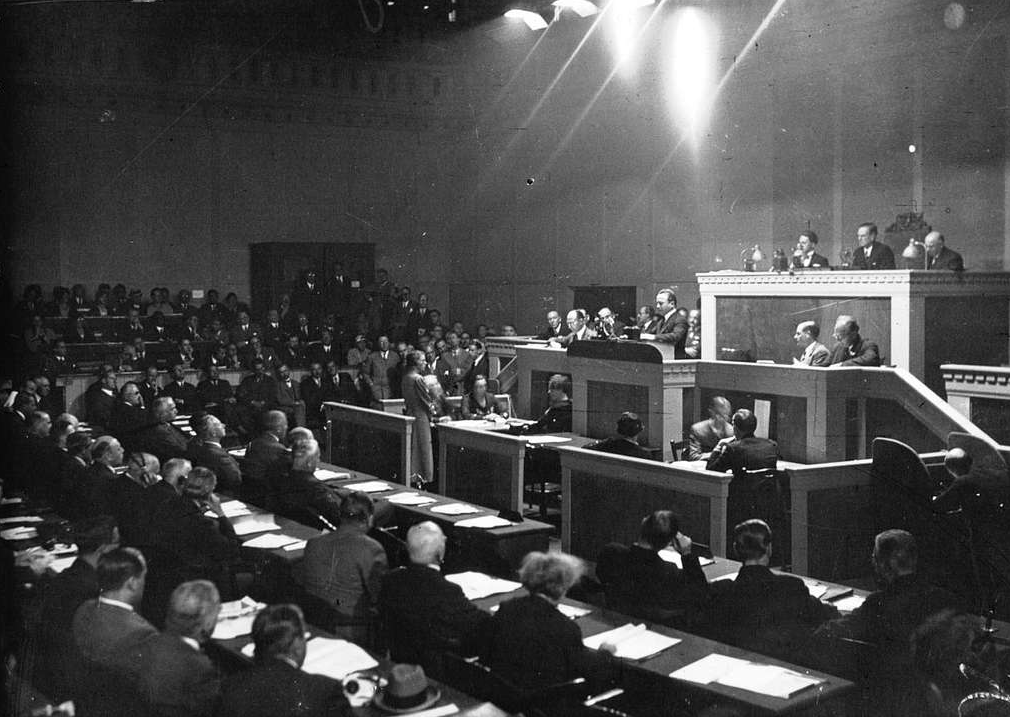 National Library of France, Picryl
National Library of France, Picryl
The Red Crystal Is Adopted
In 2005, a third additional protocol was added to the Geneva Conventions recognizing the Red Crystal as an international symbol with the same protected status as both the Red Crescent and the Red Cross. The Red Crystal was devised as a neutral emblem of the aid organization, without any association to either religious groups like Christianity and Islam (as the cross and the crescent do).
Recent Applications Of The Geneva Conventions
Given the rise of international terrorism and civil wars since the adoption of the four main parts of the Geneva Conventions, there have been several recent applications of the Geneva Conventions and International Criminal Tribunals to sentence those responsible for violating the Conventions. These are adjudicated by the International Criminal Court (ICC).
Slobodan Milosevic
By far one of the most infamous criminal trials of the International Criminal Court is that of Slobodan Milosevic, for war crimes and crimes against humanity. Milosevic perished during his trial on March 11, 2006 and the proceedings were terminated on March 14, 2006.
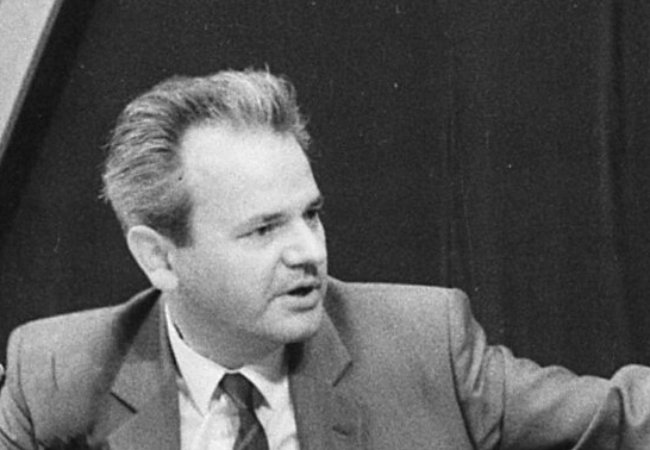 Stevan Kragujevic, CC BY-SA 3.0, Wikimedia Commons
Stevan Kragujevic, CC BY-SA 3.0, Wikimedia Commons
Radovan Karadzic
Radovan Karadzic was a Bosnian commander during the Yugoslav Wars and is the man who ordered the genocide of Bosnian Muslims at Srebrenica—where over 8,000 men and children were murdered under Karadzic's orders by Bosnian soldiers. He was convicted of five counts of crimes against humanity.
 UN International Criminal Tribunal, CC BY 2.0, Wikimedia Commons
UN International Criminal Tribunal, CC BY 2.0, Wikimedia Commons
The Prosecution Of Bemba Gombo At The ICC
Jean-Pierre Bemba Gombo was a military commander in the Central African Republic in the early 2000s, after being invited there as a member of the Movement for Liberation of the Congo (MLC) by the government of the CAR, to help put down a coup attempt. Bemba Gombo was arrested by the ICC near Brussels, Belgium and handed over to the ICC as part of their investigation into human rights abuses in the Central African Republic whilst Gombo was there. He was convicted in 2016 of three counts of war crimes and two counts of crimes against humanity.
 Vice President's Secretariat, Wikimedia Commons
Vice President's Secretariat, Wikimedia Commons
The Hunt For Joseph Kony
While Joseph Kony continues to evade capture, the International Criminal Court issued an arrest warrant for Kony on July 8, 2005 for 12 counts of crimes against humanity and 21 counts of war crimes for his part in the conflict in Uganda as the commander of the Lord's Resistance Army. The counts include murder, abduction, recruiting child soldiers, and other heinous crimes.
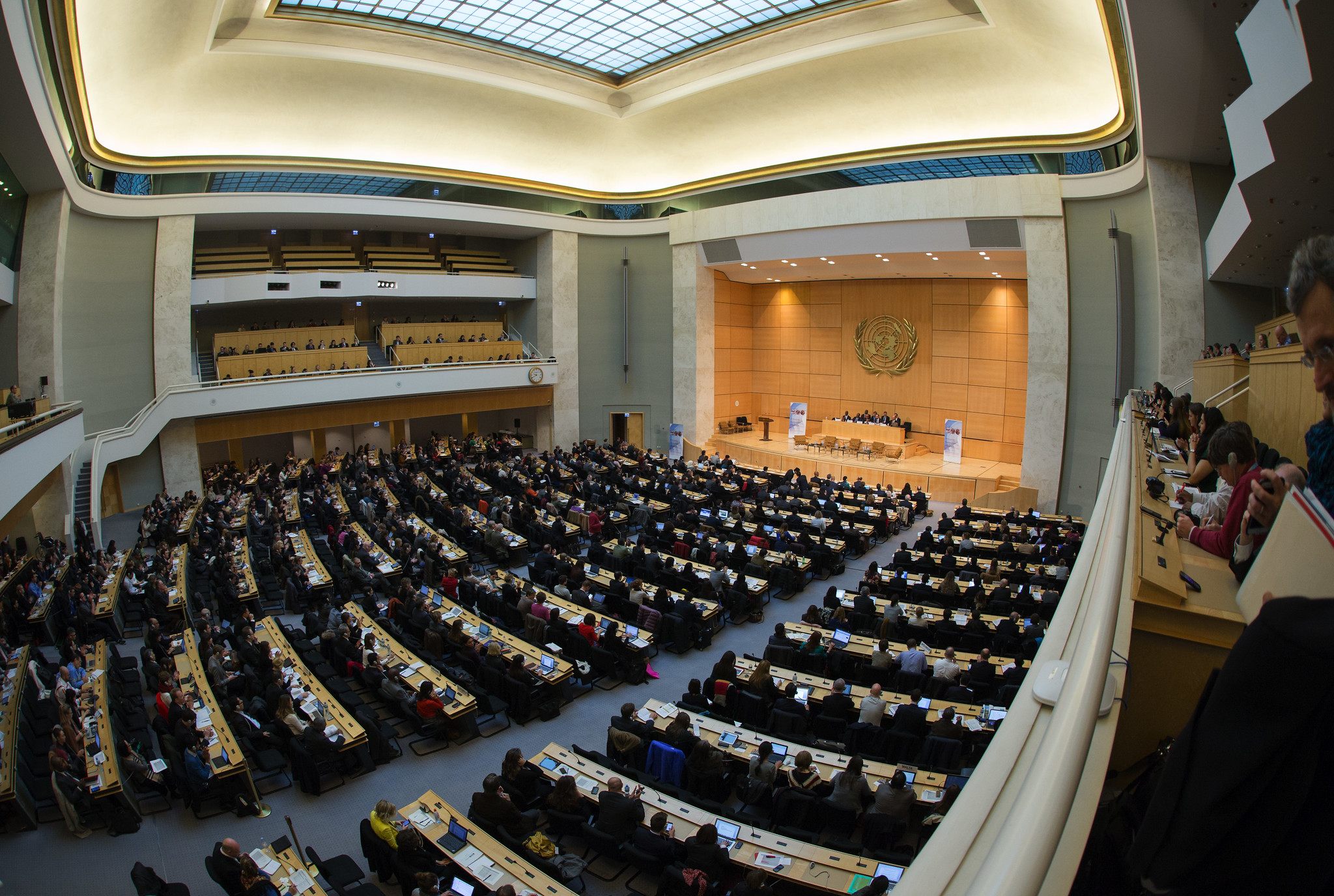 United States Mission Geneva, Flickr
United States Mission Geneva, Flickr
America And The International Criminal Court
It's worth noting that the United States is not signatory to the Rome Statute—the 2002 statute that enforces that signatory nations to the Geneva Conventions must act to arrest individuals charged with violations of the Conventions. The United States' torture and mistreatment of detainees at Guantanamo Bay and elsewhere would definitely constitute violations of the Geneva Conventions and the laws of conflict. But, as the United States is not signatory to the Rome Statute, it cannot be held legally responsible for these violations.
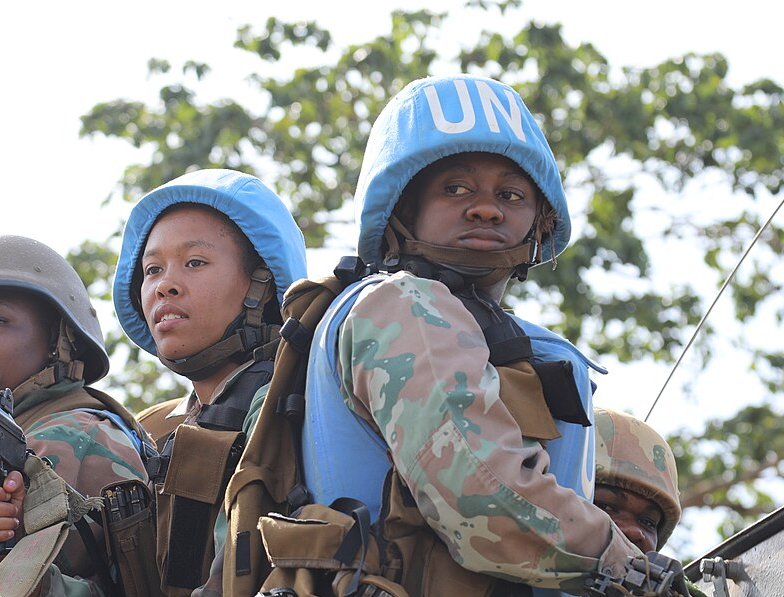 MONUSCO, CC BY-SA 2.0, Wikimedia Commons
MONUSCO, CC BY-SA 2.0, Wikimedia Commons
An Arrest Warrant For Vladimir Putin Is Issued
On March 17, 2023, an arrest warrant was issued by prosecutors at the ICC for Russian President, Vladimir Putin, in relation to his country's actions in Ukraine, in particular the forcible kidnapping of Ukrainian children by Russian soldiers. Putin cannot be arrested on Russian soil, but member-states of the ICC have a duty to arrest him under the Geneva Conventions.
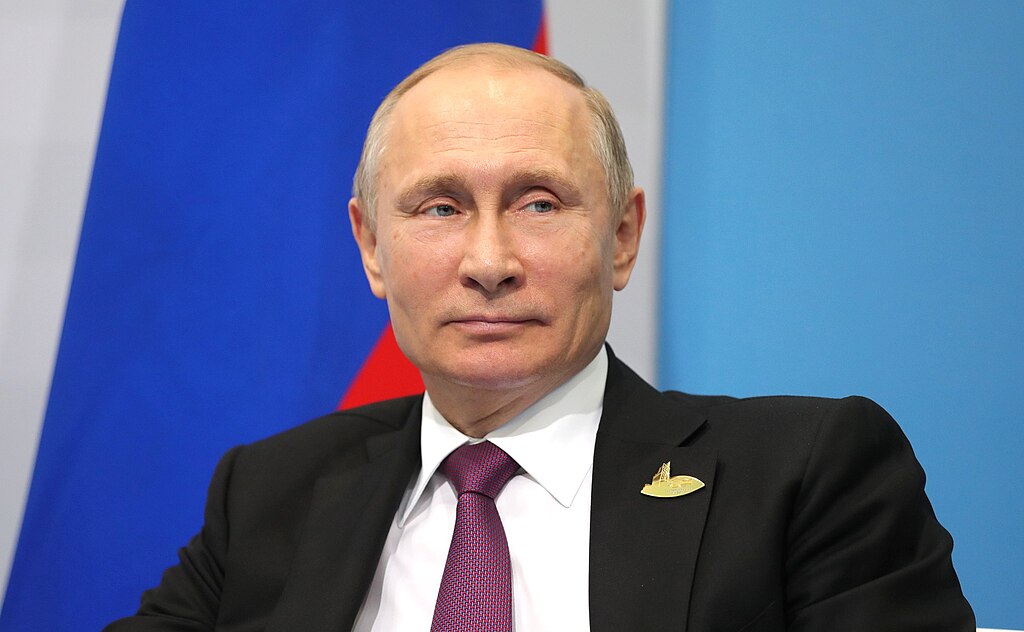 Kremlin.ru, CC BY 4.0, Wikimedia Commons
Kremlin.ru, CC BY 4.0, Wikimedia Commons
The Red Cross' Not-So-Humanitarian Actions
Despite having an international mandate to help people in times of great need, recent actions by members of the Red Cross during hurricane relief efforts have called the organization's reputation into question. Supposed to be beyond reproach, the ICRC has allegedly—according to ProPublica/NPR investigations—thrown out food that was intended for Hurricane Sandy victims, including over 35,000 Danish pastries that were reportedly tossed because the agency didn't know where to deliver them.
Additionally, the Red Cross were dispatched in the wake of Hurricane Isaac in Louisiana, with 80 empty trucks filled with no supplies to give to the suffering citizens after the hurricane hit. In the wake of the same storm, the Red Cross published a "Lessons Learned" report, which, according to ProPublica, included that "disabled clients were sleeping in their wheelchairs for days".
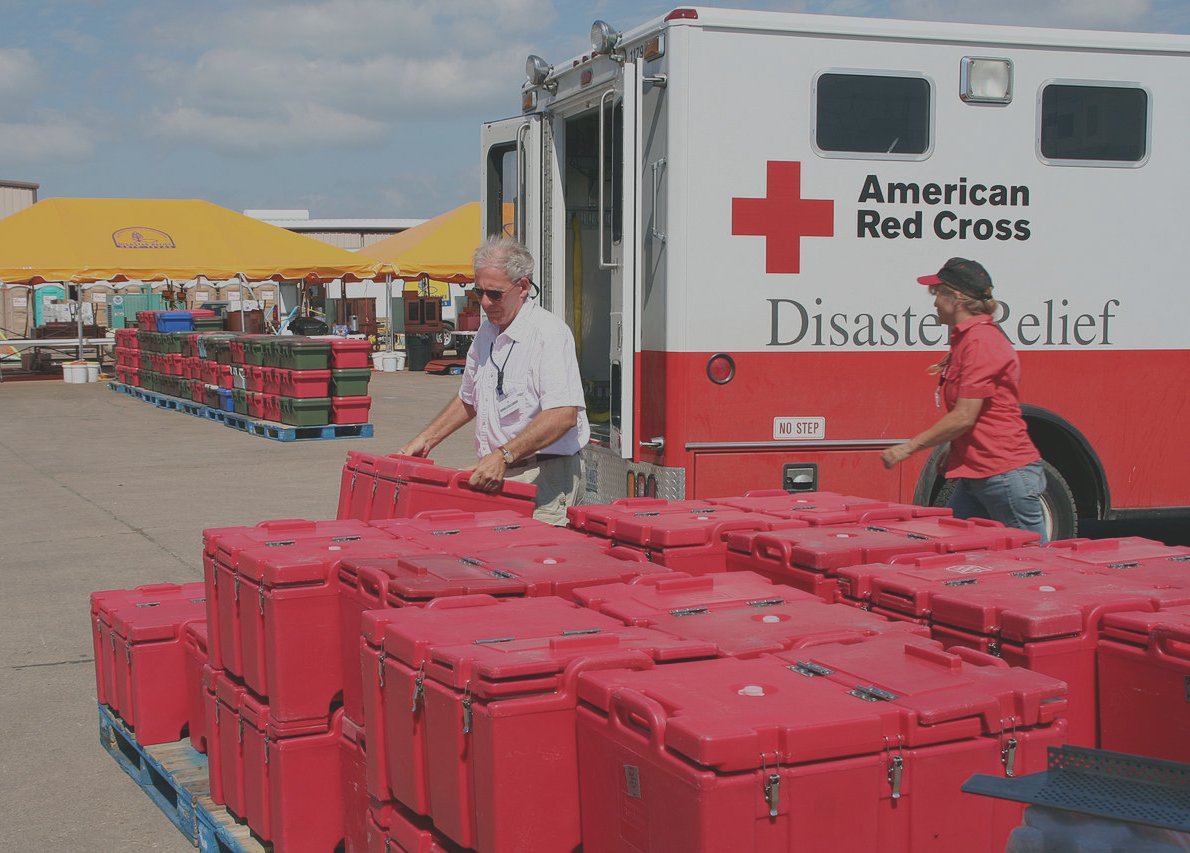 Greg Henshall, Wikimedia Commons
Greg Henshall, Wikimedia Commons

